Contact Us
- Prof. Georg S. Kranz
- Phone: +852 2766 4838
- Email: georg.kranz@polyu.edu.hk
- Address: 5/F, Building ST, 11 Yuk Choi Rd, The Hong Kong Polytechnic University, Hung Hom, Hong Kong, China
The Kranz group focuses on utilizing non-invasive brain stimulation in combination with neuroimaging to investigate the mechanism of action of brain stimulation therapies for neuropsychiatric disorders. We also strive to optimize treatment protocols, especially for transcranial magnetic stimulation and transcranial pulse stimulation, in several ongoing clinical trials. Finally, we aim to explore the utility of non-invasive brain stimulation as a prognostic tool to predict treatment success and disease relapse.

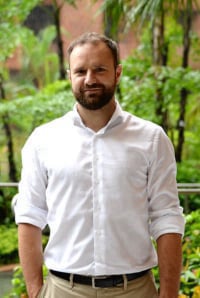
Principal Investigator and Team Leader
Qualifications:
· Dr.med.sci., Priv.-Doz., Mag.rer.nat.
Positions:
· Associate Professor, Department of Rehabilitation Sciences, The Hong Kong Polytechnic University, Hung Hom, Hong Kong
Research interests/areas of interest:
· Therapeutic and diagnostic use of non-invasive brain stimulation in psychiatric disorders
· Psychopathology and neuroimaging
Biography:
Georg has dedicated his career to the field of human neuroscience and biological psychology/psychiatry. His research concept is experimental in nature; he has utilized various research strategies, including classical RCTs, correlational and epidemiological research, as well as single-case designs. His research interests cover the neurobiology of mood disorders; non-invasive brain stimulation (including TMS and TPS); steroid hormones and serotonergic neurotransmission; and neuroimaging using cutting-edge technology. He has conducted several studies using EEG, PET, and MRI, including 7-Tesla Ultrahigh-field MRI. His team’s current research is focused on the application of non-invasive brain stimulation. In several ongoing projects, his team investigates dose-response relationships of behavioural and cognitive effects of the stimulation; protocol optimizations for therapeutic stimulation; and they apply simultaneous brain stimulation and neuroimaging to evaluate prefrontal excitability as a predictor for disease relapse and treatment response.

Principal Investigator
Position
Research Assistant Professor
Qualifications
· Doctor of Philosophy, The University of Hong Kong
· Master of Philosophy, The University of Hong Kong
· Bachelor of Science (Bioinformatics), The University of Hong Kong
Research Interest
Precision Psychiatry, Mental Health, Neuroimaging, Computational Modelling
Kevin is a Research Assistant Professor in the Department of Rehabilitation Sciences at The Hong Kong Polytechnic University (PolyU). Previously, he worked as a Research Scientist in the Department of Psychiatry at the University of British Columbia (UBC), where he conducted diffusion MRI and ultra-high-field 7T MRI research. He applies computational approaches, particularly normative modelling and BrainAGE, to quantify individual differences in brain structure and function in conditions such as schizophrenia and bipolar disorder. His current research interests include extending these methods across diverse cohorts and applying them in neuromodulation studies to link individual brain differences with clinical profiles and treatment response.

Senior Scientific Officer
Qualifications:
· PhD in Biomedical Engineering, Department of Electrical and Electronic Engineering, The University of Hong Kong (2020)
· BEng in Information and Communication Engineering, College of Information Science and Electronic Engineering, Zhejiang University (2015)
Research interests/areas of interest:
· Magnetic Resonance Imaging
· Biomedical Imaging
· Brain Modulation Techniques
· Neuroscience
Biography:
Celia currently serves as the senior scientific officer at the Department of Rehabilitation Sciences, PolyU. She obtained her BEng in Information and Communication Engineering from Zhejiang University in 2015 and her PhD in Biomedical Engineering from The University of Hong Kong in 2020. Prior to joining the Department of Rehabilitation Sciences, she worked in the University Research Facility in Behavioral and Systems Neuroscience (UBSN) at The Hong Kong Polytechnic University. Celia’s research focuses on developing multimodal imaging techniques, such as TMS-fMRI and optogenetics-fMRI, to explore brain function and mechanisms in human and animal models.
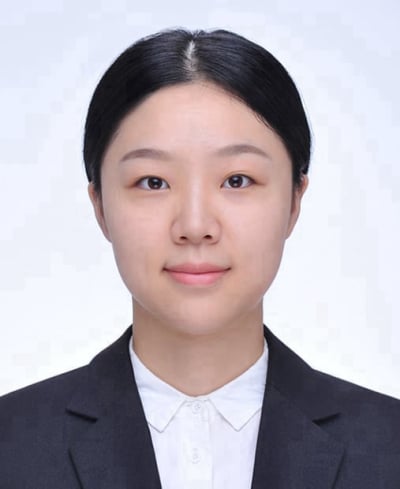
Postdoc
Qualifications:
· PhD at Department of Rehabilitation Sciences,
The Hong Kong Polytechnic University (2025)
· M.Sc. in Biomedical Engineering, The Hong Kong Polytechnic University
· B.Sc. in Natural Science in Rehabilitation Therapy, Sichuan University
Research interests/areas of interest:
· Transcranial magnetic stimulation (TMS)
· Functional near-infrared spectroscopy (fNIRS)
· Sub-clinical depression major depressive disorder (MDD).
Biography:
Bella received her Bachelor of Natural Science in Rehabilitation Therapy from Sichuan University in 2016 and her Master of Science with Distinction from the Department of Biomedical Engineering, The Hong Kong Polytechnic University in 2018. TMS is an FDA-approved treatment for people with MDD. However, the response rate to TMS is limited. Her study focuses on the neuromodulation effects of theta-burst stimulation (TBS), especially the effects of priming TBS on people with subthreshold depression.
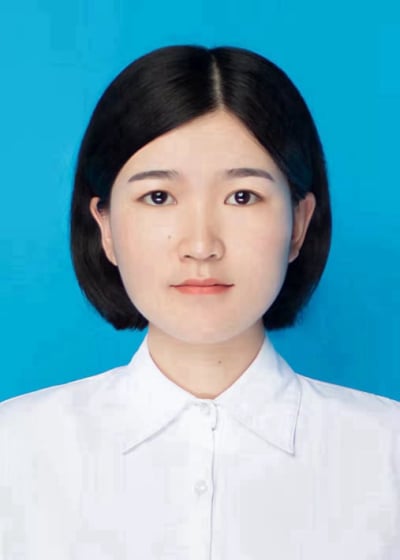
Postdoc
Qualifications:
· PhD at Department of Rehabilitation Sciences,
The Hong Kong Polytechnic University (2024)
· M.Sc. in Occupational Therapy, The Hong Kong Polytechnic University
· B.Sc. in Occupational Therapy, Sichuan University
Research interests/areas of interest:
· Therapeutic effects of TMS in psychiatric disorders
· Predicting the treatment efficacy of repetitive TMS on MDD
· Neuroimaging, concurrent TMS/fNIRS
Biography:
Rebecca is interested in treatments with TMS in psychiatric disorders (e.g., MDD and addiction) together with neuroimaging (e.g., fNIRS) to investigate the neurobiology of these disorders and to optimize the TMS treatment protocol. She is currently working on optimizing the antidepressant efficacy of therapeutic repetitive TMS using concurrent TMS/fNIRS. In this project, iTBS-induced prefrontal excitability is used as a predictor of treatment response of four weeks iTBS on MDD. iTBS-induced prefrontal excitability may have great potential for individualized treatment of MDD.ada elit.
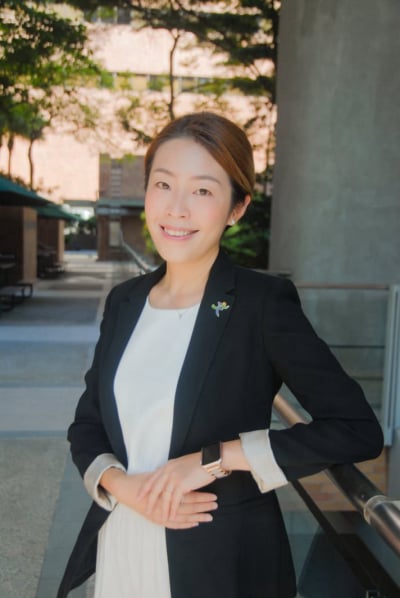
PhD Student
Assistant Professor of Practice, Department of Rehabilitation Sciences, The Hong Kong Polytechnic University
Qualifications:
· MSocSc in Applied Psychology, The City University of Hong Kong
· BSc (Hons) in Occupational Therapy, The Hong Kong Polytechnic University
Research interests/areas of interest:
· Transcranial Magnetic Stimulation (TMS) in Treatment resistant depression (TRD)
· Occupational-based interventions
· Occupational Therapy education
Biography:
Vera started out her career as a clinician, specialises in Occupational Therapy in psychiatry and has provided recovery-oriented services in public hospitals for more than 15 years. She has extensive clinical experience in general and community psychiatry, psychogeriatrics, substance abuse, as well as cognitive assessment and rehabilitation. Apart from clinical practice, Vera also enjoys research. She was the leader of a research project sponsored by the Beat Drugs Fund Association, Narcotics Division, Security Bureau, The HKSAR Government between 2017 and 2020. Vera has committed herself into the training of Occupational Therapists at PolyU, in the capacity of Assistant Professor of Practice since 2021. She is the winner of Outstanding Young Teacher Award in 2024.

PhD Student
Qualifications:
· M.Sc. in Musculoskeletal Medicine and Rehabilitation, Chinese University of Hong Kong
· B.Sc. in Occupational Therapy, Sichuan University
Research interests/areas of interest:
· Non-invasive brain stimulation in psychiatric and neurological disorders
· Transcranial pulse stimulation (TPS) in depression
· Precision rehabilitation
Biography:
Penny's research focuses on precision rehabilitation in mental health. She is investigating the effectiveness of transcranial pulse stimulation (TPS) on depression and developing an individualized treatment strategy to benefit patients with depression.
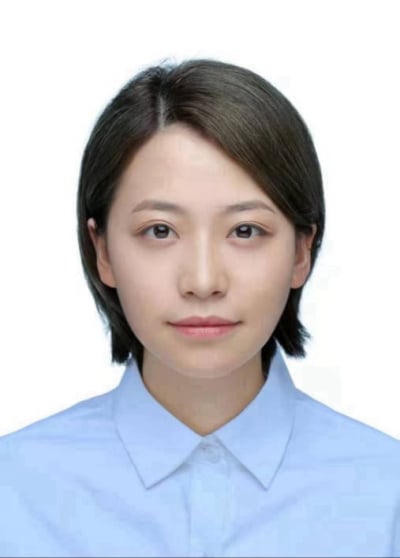
PhD Student
Qualifications:
· M.Sc. in Occupational Therapy, The Hong Kong Polytechnic University
· B.Sc. in Rehabilitation Therapy, Nanjing Medical University
Research interests/areas of interest:
· Predicting the illness trajectories in Major Depression
· Neuroimaging, concurrent TMS/fNIRS
Biography:
Jimmy is interested in investigating vulnerability to repeated episodes of MDD and predicting illness progression using neuroimaging data. She is currently working on a cross-sectional study to determine whether the TMS-induced instantaneous brain activity change in DLPFC is associated with vulnerability to MDD. Then, the main finding will be used in her study to predict illness trajectories in MDD based on a 2-year follow-up longitudinal study.

PhD Student
Qualifications:
· M.Sc. in Occupational Therapy, The Hong Kong Polytechnic University
· B.Sc. in Occupational Therapy, Sichuan University
Research interests/areas of interest:
· Therapeutic effects of TMS in psychiatric disorders
· Precision rehabilitation in mental health
· Neuroimaging, concurrent TMS/fNIRS
Biography:
Adam is interested in the precision treatments with TMS in psychiatric disorders (e.g., MDD). He is currently working on developing concurrent TMS/fNIRS protocols that guide treatment individualization for patients suffering from MDD. He aims to move away from categorically-defined psychopathology and adopt a transdiagnostic approach by focusing on individualized treatment strategies on symptoms (e.g., depressive symptoms) shared across neuropsychiatric diagnoses.
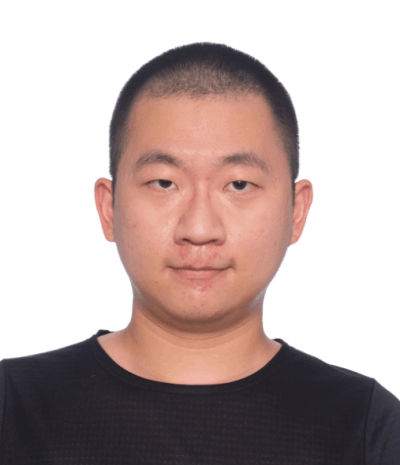
PhD Student
Qualifications:
· M.Sc. in Translational Neuroscience, Imperial College London
· B.Sc. in Applied Biology with Biotechnology, The Hong Kong Polytechnic University
Research interests/areas of interest:
· Neuroimaging and behavioural task markers of the effects of non-invasive brain stimulation
· Markers for psychiatric disorders based on neuroimaging combined with non-invasive brain stimulation
Biography:
Tim has been honoured with the highly competitive Hong Kong PhD Fellowship for the academic year 2024/25. He is experienced in magnetic resonance imaging (MRI) analysis and coding for computerized tasks, proficient in biochemical techniques, and acquainted with animal experiments. He is currently working on a project attempting to improve the relearning of associative memory using functional MRI-guided transcranial magnetic stimulation (TMS). His future plans include using concurrent functional MRI/TMS to search for depression and addiction.
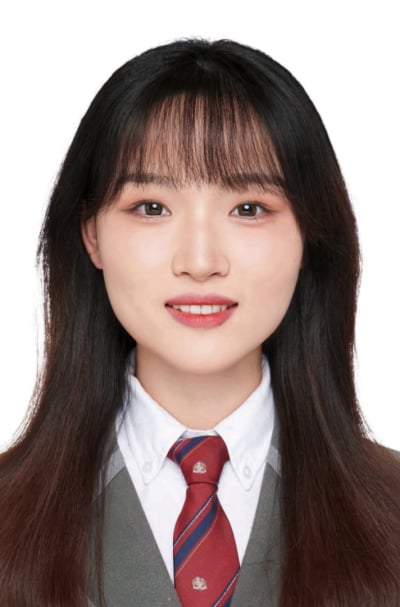
PhD Student
Qualifications:
· M.Sc. in Occupational Therapy, The Hong Kong Polytechnic University
· B.Sc. in Rehabilitation Therapy, Southern Medical University
Research interests/areas of interest:
· Non-invasive brain stimulation
· Psychiatric and neurological disorders
Biography:
Sharie is pursuing a master’s degree in occupational therapy at The Hong Kong Polytechnic University. She is working as a part-time research assistant in Dr. Kranz's team. Her research interest lies in the application of non-invasive brain stimulation in psychiatric disorders. Currently, Sharie is actively involved in a study using functional NIRS to investigate the changes in prefrontal cortex activity in individuals with remitted major depressive disorder (rMDD).

Research Associate
Qualifications:
· M.Sc. in Psychology, Sheffield Hallam University, United Kingdom
· B.A. in Creative Media, City University of Hong Kong
Research interests/areas of interest:
· Positive Psychology in parenting
· Non-invasive brain stimulation in autism spectrum disorders
Biography:
Wanda is passionate about finding innovative ways to improve the wellbeing of depression patients. Currently Wanda is involved in studies that investigate the intensity-response relationship of intermittent theta-burst stimulation in major depressive disorder. Her previous experience involved enhancing primary healthcare for older adults in Hong Kong with the use of gerontechnology and telecare.
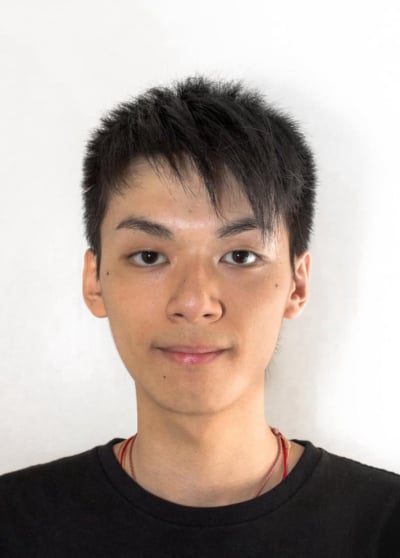
Research Associate
Qualifications:
· MSc in Health Psychology, University of Surrey, United Kingdom
· BSc in Psychology, University of Exeter, United Kingdom
Research interests/areas of interests:
· Mood disorders
· Transcranial Magnetic Stimulation (TMS) in depression
· Therapeutic effect of Transcranial Pulse Stimulation (TPS) in psychiatric disorders
Biography:
After completing his master’s degree in University of Surrey. Ivan started a research career in clinical psychology and public health. Ivan’s primary research interest lies in the therapeutic effect of transcranial pulse stimulation (TPS) in psychiatric disorders (e.g., depression and anxiety). He is currently involved in a project to investigate the dose-response relationship of TPS on neural activation and the effect of different stimulation targets on neural network organization. He hopes that the results will be useful to develop the use of TPS in clinical setting in the future.

Research Assistant
Qualifications:
· B.S. in Psychology, University of Washington, Seattle
Research interests/areas of interest:
· Mood disorders
· Non-invasive brain stimulation
Biography:
Alvin is a graduate of the University of Washington, Seattle. While earning his Bachelor of Science in Psychology, his research work primarily focused on mood disorders and abnormal animal behaviors. After graduating, he joined the Kranz lab working as a research assistant. Currently, he is involved in research focusing on the influence of noninvasive brain stimulation (e.g., TMS) on MDD. His research interests broadly span the intersections between neuroscience and clinical psychology.
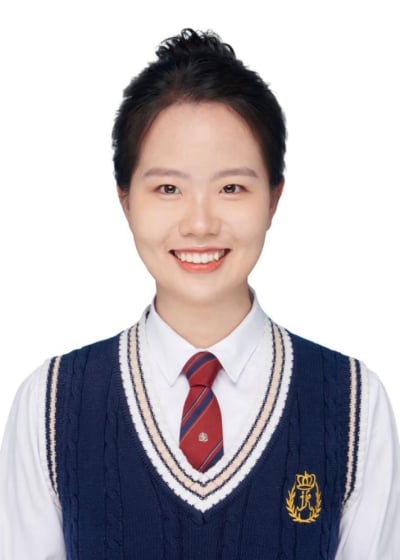
Research Assistant
Qualifications:
· M.Sc. in Occupational Therapy, The Hong Kong Polytechnic University
· B.Sc. in Rehabilitation Science, Capital Medical University
Research interests/areas of interest:
· Neuroimaging
· Non-invasive brain stimulation
Biography:
Nancy is a graduate of the Hong Kong Polytechnic University. While studying for her master’s degree, she completed the research on exploring the influence of stimulation time on cerebral hemodynamic response caused by iTBS by performing concurrent fNIRS/TMS under the supervision of Kranz and now working as a research assistant in Kranz’s lab. She is currently involved in studies focusing on TMS-induced changes in brain activity associated with different populations (e.g., healthy/rMDD/MDD).
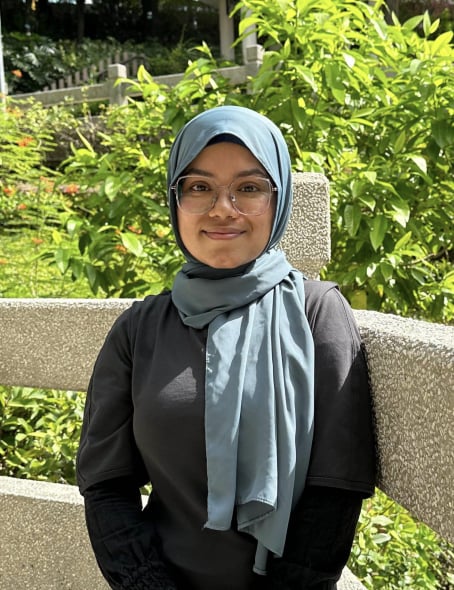
Research Assistant
Qualifications: B.S. in Biomedical Engineering, City University of Hong Kong
Research interests: Non-invasive brain stimulation, tTIS, TMS
Biography:
Nusaibah completed her Bachelor's in Biomedical Engineering, during which she was involved with research in myopia and is thus acquainted with wet-lab molecular biology techniques and animal experiments. After graduating, she joined Kranz lab and is focusing on the implementation of transcranial temporal interference stimulation (tTIS) for treatment of depression.

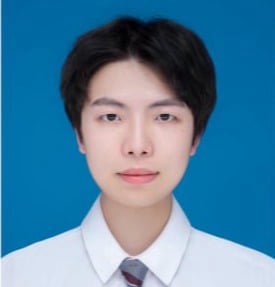

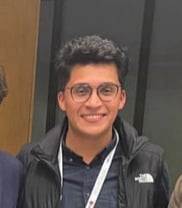
Free AI Website Builder